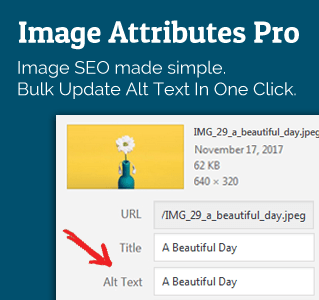A guest post by Alice Sweeney. If you wish to write one, check out the guest-posting guidelines and details.
As a freelance writer in the digital era, I’ve encountered many a content management system. As a writer, I’m both more busy than I have been in a long time and have a higher learning curve to climb.
More busy because of Panda – and Google telling everyone that not only should they have unique content, but that the attic light should be on – you have to have fresh, unique content on a regular basis; someone needs to be home, so to speak.
Higher learning curve because I have different clients with different ways of managing their websites, and I need to be able to hit the ground running and be able to do what they ask with a minimum of confusion and questioning on my part – and I have had to acquire the basics of SEO, development and content management, along with a smattering of design.
Above and beyond, my experiences with WordPress have been the most straightforward, but I’ve worked with many other a content management system. Here are my thoughts on the three I have worked with most frequently:
Squarespace
 One that I have had a great deal of exposure to is a paid CMS/server called Squarespace. As someone who has a basic understanding of SEO and knows what the code on a good website should look like – Squarespace makes me cry. It has a great design interface, and some really good templates, but that is about it.
One that I have had a great deal of exposure to is a paid CMS/server called Squarespace. As someone who has a basic understanding of SEO and knows what the code on a good website should look like – Squarespace makes me cry. It has a great design interface, and some really good templates, but that is about it.
The functionality that I got used to having with WordPress really isn’t there. Editing the source code on any given page is kind of convoluted – changing the CSS even more so – and if you want to edit the <head>, forget about it. Custom domains are CNAMES and you can’t do 301 redirects from one to the other. Add on top of that that Squarespace adds a lot of code into your page automatically, and there ain’t nothing you can do about it.
They also say that SEO is a bad idea, and don’t allow easy access to the meta-data on a site.
Overall, the only way I would recommend Squarespace was if all you cared about was having a pretty site that was easy for you to edit, and didn’t care about actually getting found. I don’t have the heart to tell my client that the CMS they’re using isn’t helping their business at all – though I have a responsibility to, at some point or another.
Joomla
 Joomla is a CMS that I am a little less familiar with, perhaps because the biggest downfall for me with Joomla is that there is a steeper learning curve than WordPress. WordPress is ready out of the box, and is extremely intuitive – plus, if you do something wrong, WordPress will tell you; Joomla not so much.
Joomla is a CMS that I am a little less familiar with, perhaps because the biggest downfall for me with Joomla is that there is a steeper learning curve than WordPress. WordPress is ready out of the box, and is extremely intuitive – plus, if you do something wrong, WordPress will tell you; Joomla not so much.
Also, as a person who is fond of clean designs, the websites that I’ve worked with in Joomla have ended up being a bit too modular for my personal taste.
I’m not an authority on Joomla, in any way, but from what I understand it is in some ways more powerful than WordPress. But – it takes a good deal of learning to really leverage all that power and capability.
I would recommend Joomla more to folks who are programmers, or at least developers – you need a thorough understanding of how a website really works to truly appreciate everything that Joomla has to offer.
WordPress
 As I have said, my personal preference is for WordPress. Why? I think it’s because it is so intuitive, and as I grow in my knowledge of HMTL and various standard web practices, WordPress grows with me – there are capabilities that I can activate and plugins that I can install – what you can do with WordPress is endless – and if you just want to have a wordpress.com blog using only the visual editor, you can do that too.
As I have said, my personal preference is for WordPress. Why? I think it’s because it is so intuitive, and as I grow in my knowledge of HMTL and various standard web practices, WordPress grows with me – there are capabilities that I can activate and plugins that I can install – what you can do with WordPress is endless – and if you just want to have a wordpress.com blog using only the visual editor, you can do that too.
It’s workable for everyone on any level – WordPress is actually used by nearly 15% of Alexa’s top million websites, and has been downloaded over 32 million times. Colleges and news sources use it, and that website your neighbour created for their cat uses it too. Inexpensive, as well.
But whatever CMS you use, it all comes down to your web presence – if you have a strong identity and are satisfied with the traffic (or conversion) you’re getting, that’s all that matters.
The Author, Alice Sweeney is a freelance writer who writes most frequently for an environmentally friendly lighting company. She keeps the attic light on with her own websites, posting regularly and getting involved in the conversation.






Hello Arun,
nice post, why you avoid the CMS drupal ?
I really feel that the list is incomplete without Drupal.. I wonder why you have excluded that in this list..
Hi. I think you have the responsibility to tell your client that they’re going nowhere with their choice of CMS. As the site developer, you need to make them understand that it’s very important to choose the right CMS if they want their website to function as an effective marketing tool.
I agree with you that wordpress is the cms if we want to get maximum benefit out.
particularly for seo. I am a java developer by profession